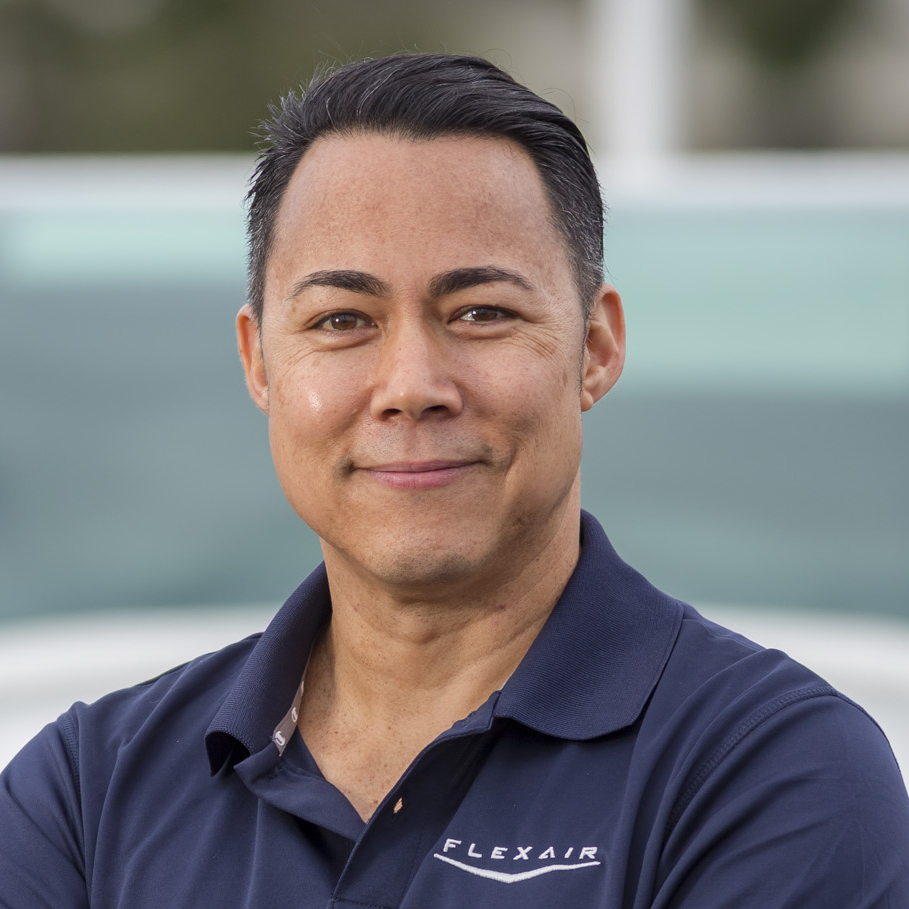Flight training is about to change for the better
We put our students first at Flex Air, and nothing is a testament to that more than our introduction of an all-electric, zero-emissions aircraft fleet. We’re a launch customer for the eFlyer 2, a clean, renewable energy, electric training aircraft, manufactured by industry leader Bye Aerospace.
Even though we’ve been twice recognized as an AOPA Distinguished Flight School, we recognize great instruction is just the first step. Aviation training has been stuck in an endless holding pattern for over half a century. Our community is at a crossroads. Most training aircraft were designed and manufactured between 1960 and 1983. Our students, instructors, and airline partners deserve a better and more environmentally responsible training experience than what these outdated planes can deliver. They should be insulated from the cost fluctuations of an uncertain avgas supply chain. Training tempo needs to increase to match the intense demand for new airline pilots. This means we need aircraft that are more reliable and efficient than old piston trainers. So we’ve committed to electrifying our entire primary trainer pipeline, and our new aircraft will enter service by 2025.
Electric aircraft offer significant benefits over legacy trainers. Bye Aerospace’s eFlyer 2 motor features only a single moving part, eliminating the need for complex and costly engine oil, carburetor, or magneto systems. This design advantage translates into significantly reduced overhaul requirements, improved reliability, and enhanced safety. Electric motors also suffer no performance degradation at higher altitudes, affording the eFlyer 2 a significant aerodynamic efficiency advantage. This aircraft will have nearly the same power available at 10,000 ft. as it does at sea level… just like a jet.
Flex Air’s eFlyer 2 aircraft will feature a Garmin G3X Touch flight deck, delivering the most modern training environment available. (Courtesy of Bye Aerospace)
Safer, more efficient training is just the beginning. Hundreds of electric aircraft are in production and will be in service in the next three years. Cape Air, a regional airline in New England, aims to operate electric aircraft on scheduled routes by 2023. Mokulele Airlines has already flown commercial routes using hybrid electric aircraft manufactured by Ampaire. The emerging electric aviation market may add as many as 850,000 new aircraft serving the general aviation, charter, and regional markets during the next decade. Hundreds of thousands of new all-electric pilots will be needed. Will you be one of them?

